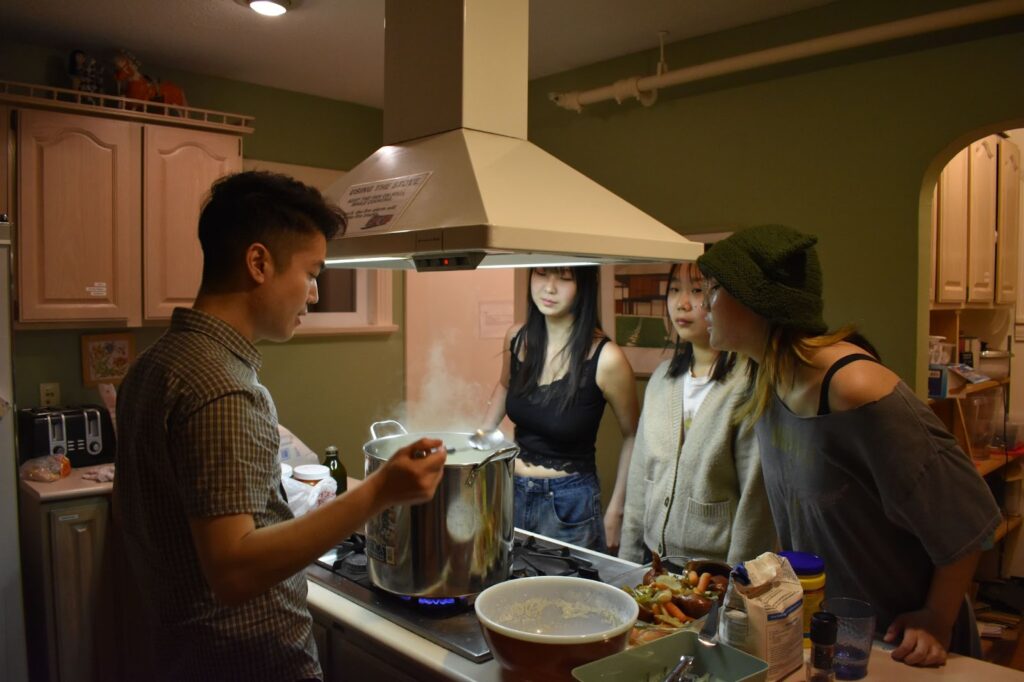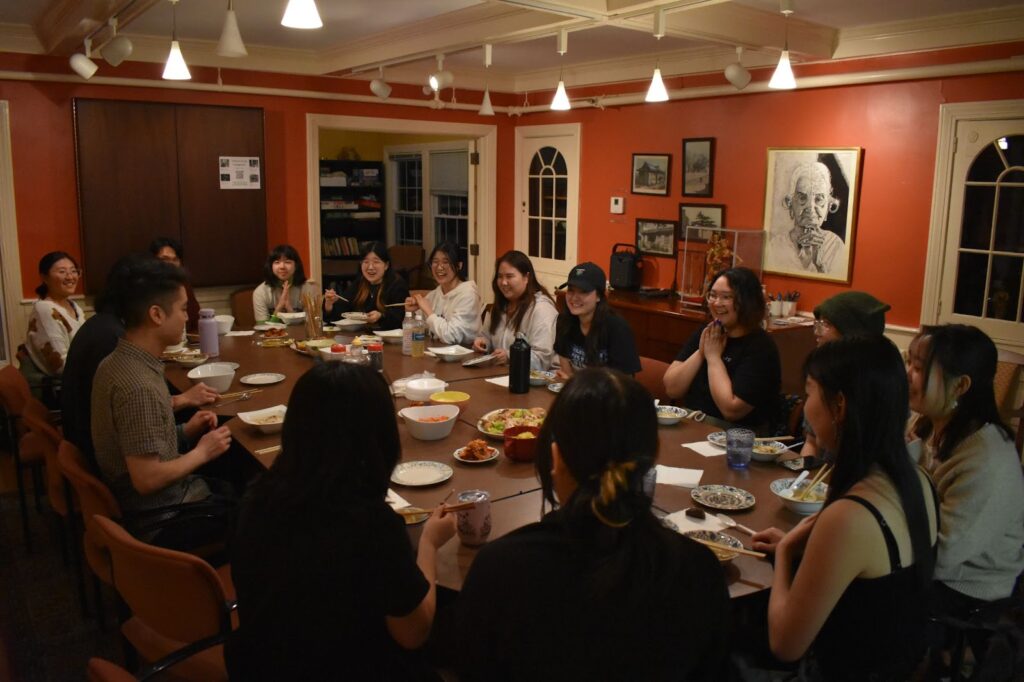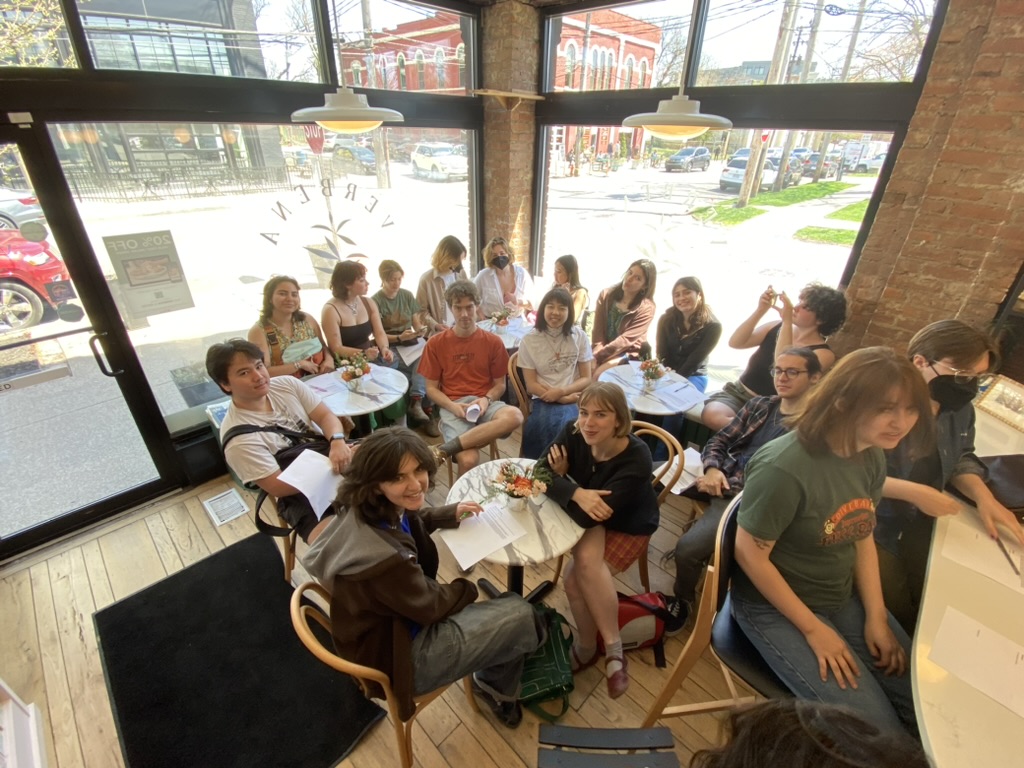Lessons in cooking, mothers, and ASMR.
I entered the room out of breath, hurrying from another obligation, I slid into a seat at the front row and was met with cheers from my friends. I told them I wouldn’t be able to make it, but after I shed a few tears and realigned my priorities, I made it my mission to get there. In front of me stood Eric Kim, the author of the cookbook Korean American and an awesome person I had been following on Instagram for a few years. I never really imagined meeting him until I realized I could use Oberlin’s money and resources to bring him to campus as a speaker. I emailed Eric in November to see if he would be interested in visiting our school and talking to us about Korean American identity and maybe even doing a cooking demo. I didn’t think I would get a response that quickly, but he responded within 12 hours with interest and charmingly signed off the email with “Sent from a potato.” After months of organizing and ensuring everything was in check, he missed his flight by 5 minutes. Luckily, he could scramble onto a new one and flew from New York to Detroit to Cleveland, flying over Lake Erie and making it to campus to still give a talk.

Photo Credit: Anais Lowenthal
His talk began with a discussion of his early online career in ASMR and a Michelle Branch fan page. He charted his bumpy and curvy path to becoming a New York Times cooking columnist. The original path he started on was through English literature, eventually starting a PhD program. He talked about the racial microaggressions he faced in this line of work, where the academic canon was mostly full of white men and where he did not feel represented. At the end of his program, he did not pass his thesis defense. I was struck by the honesty of the talk as he dove into the trauma of failing his thesis defense for his PhD program; the raw emotions that he expressed to strangers of such a large audience were awe-inspiring. After this large pivot in his life, he talked on the phone with his brother and realized that food was something that he was always called to. From his ASMR food-eating channel to his love for cooking, he decided to jump into the world of cooking. He began as an editor for Food52 and Saveur then began as a columnist for the New York Times. After years of running around and working as a food journalist, he wrote his debut cookbook during the pandemic. The cookbook, Korean American: Food That Tastes Like Home, focuses a lot on his mom. He moved home to Atlanta to work on the cookbook with his mother. The cookbook is very personal, it talks about his own experiences growing up in the US and having immigrant parents.

Photo Credit: Anais Lowenthal
After the talk, I had him sign my book and talked to him about how I, too, wanted to start an ASMR channel. He said that I should, affirming a funny little idea I’ve had for years. The Korean Students Association members then went to Shansi House to cook chicken sujebi with Eric. Throughout the cooking, he told anecdotes about his life and talked to us about ours. One question he asked really stuck with me; he asked what our moms were like. As someone who has a Korean mother, this question felt like such an honest way to get a glimpse into our lives. The way he told stories about his own life through food, tracking the memory, history, and future of eating and cooking felt so honest. During the cooking demonstration, he acted like a friend giving tips about how to salt and brine a raw chicken, what to do with the leftover carcass, and how long to boil vegetables to make a nice stock. It can be weird to meet niche micro-celebrities you look up to, but meeting Eric Kim was lovely. He even followed me on Instagram afterward.
